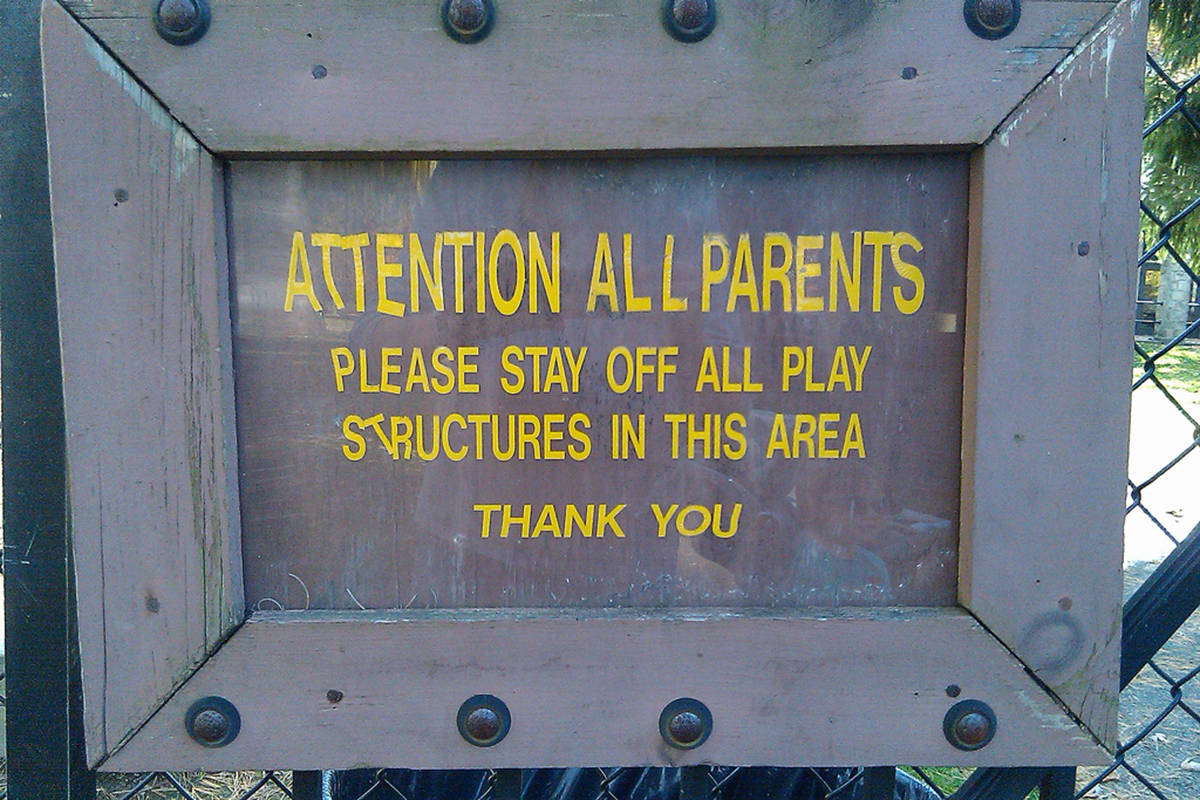Do you feel that your parents and the way in which they raised you are responsible for a good portion of your current-day problems in life? Can't you help but blame them for their wrongdoings, or at least wonder, now and then, what your life would have been like if your parents had done things differently?
You are not alone. Exactly what parental actions have a tendency of carrying over into adult life though — and perhaps more importantly, should we blame them, or move on and forgive?

Things You Really Can 'Blame' Your Parents For
Data from the Minnesota Longitudinal Study of Risk and Adaptation, in which researchers followed low-income children for many years, even into their thirties, revealed that early parenting really does have a lasting effect. Those children whose mothers had a more attentive and gentle parenting style during their first three years of life, the study revealed, were able to attain higher levels of academic success as well as having more successful relationships.
Unsurprisingly, research also shows that the impact of childhood abuse — whether it be verbal, physical, or neglectful — extends well into adulthood. A lack of parental care in childhood not only translates to multisystem health risks, but also to a higher risk of premature death.
Eating habits are set early in life, with obese children also more likely to become obese adults. What's more, children raised on an obesity-causing diet of junk food are at a higher risk of a whole range of health issues, from diabetes to heart disease. As parents largely determine what kind of foods they feed their young kids, it is safe to say that your parents really do exercise a great influence over your diet and health in later life.
Further, parents exercise the greatest degree of influence over their children's future spiritual beliefs, more so even than peers. However, interestingly enough, though children of political animals are indeed more likely to make politics a frequent discussion topic in their lives, research shows that parents who push their political views on their kids too much are more likely to cause them to abandon those beliefs. Research additionally shows that while young kids rather naturally take on their parents' prejudices (yes, we all have them), they do adopt their own through lived experience later down the line.
READ Help your children deal with divorce
What about divorce — since you're pretty likely to have already read that children of divorced parents are also more likely to divorce themselves, later in life? One long-term study actually found that it might not be parental divorce that causes people to be more likely to break off their own marriages, but rather witnessing parental conflict. Indeed, children of amicably divorced parents were no more likely to divorce than those of parents who stayed together.
If you had overly controlling parents who invaded your privacy and tried to create you to be their life-long dependents, you will be interested in hearing that controlling parenting has indeed been confirmed to lead to lower rates of happiness and overall wellbeing later in life.
Is It Time To Stop Blaming Your Parents?
While I was in cognitive behavioral therapy to overcome the effects of childhood sexual abuse, my therapist urged me — more than once — to forgive my mother for the role she unwittingly played in making that abuse possible. She did not, even, ask me whether I blamed or resented my mother before applying what I perceived as incredible pressure to offer forgiveness. Encouraging me to take part in role-play scenarios where she would play my mother, she simply assumed that I would emotionally benefit from "letting go".
Forgiveness is, I found out over the course of being in therapy and talking with others about it, a concept that means many different things to many different people. To my very religious friend, for instance, it means nothing more than "I don't have a fervent wish for this person to burn in hell". To others, it may mean that you aren't just not angry any longer, but also willing to completely set aside whether caused the need to offer forgiveness in the first place and move on to having a full social relationship with the person.

For me, once my mother had made it clear that she did not know I was being sexually abused and apologized over some tears and beer, any traces of feelings of blame towards her disappeared. Was she responsible? Yes, certainly partly. Did she do the best she could at the time? Again yes. Did she mean for this to happen? No. So that was that, then. For the lingering effects that being sexually abused caused in me, I blame my rapist, not my mother.
READ Resentment vs. Forgiveness
Regardless of whether you are personally able to overcome feelings of blame towards your parents, even when there is indeed a direct correlation between your current problem and your parents' actions, wallowing in self-pity could conceivably lead you to prolonging your suffering.
Indeed, even where you can identify a clear link between your problems and your parents' actions, it can sometimes be very cathartic to assess your parents as they are now, not as they were when they were raising you. You can, in some cases, place the blame for certain events or outcomes directly on your parents, and still proceed to have a healthy and loving relationship with them.
Is it time to stop blaming your parents? Only you ultimately know the answer to that. The way forward, after introspection, is forward, though, and while your parents might have shaped your present, you can take charge of your future.
- Photo courtesy of dougbutchy: www.flickr.com/photos/dougbutchy/5153416630/
- Photo courtesy of dougbutchy: www.flickr.com/photos/dougbutchy/5153416630/
- Photo courtesy of Pedro Simoes: www.flickr.com/photos/pedrosimoes7/6179133644/
- Photo courtesy of dougbutchy: www.flickr.com/photos/dougbutchy/5153416630/
- onlinelibrary.wiley.com/doi/10.1111/cdev.12325/abstract
- pediatrics.aappublications.org/content/early/2014/10/08/peds.2014-1045.abstract
- www.pnas.org/content/110/42/17149.abstract
- www.cambridge.org/core/product/identifier/8860149_not_available/type/JOURNAL_ARTICLE
- exhumator.com/00-181-00_esoteric-religious-spiritual-parental-influence-on-adolescent-religiosity.html
- www.livescience.com/19187-children-learning-prejudice.html
- www.techinsider.io/children-of-divorce-odds-of-divorcing-2016-5


Your thoughts on this